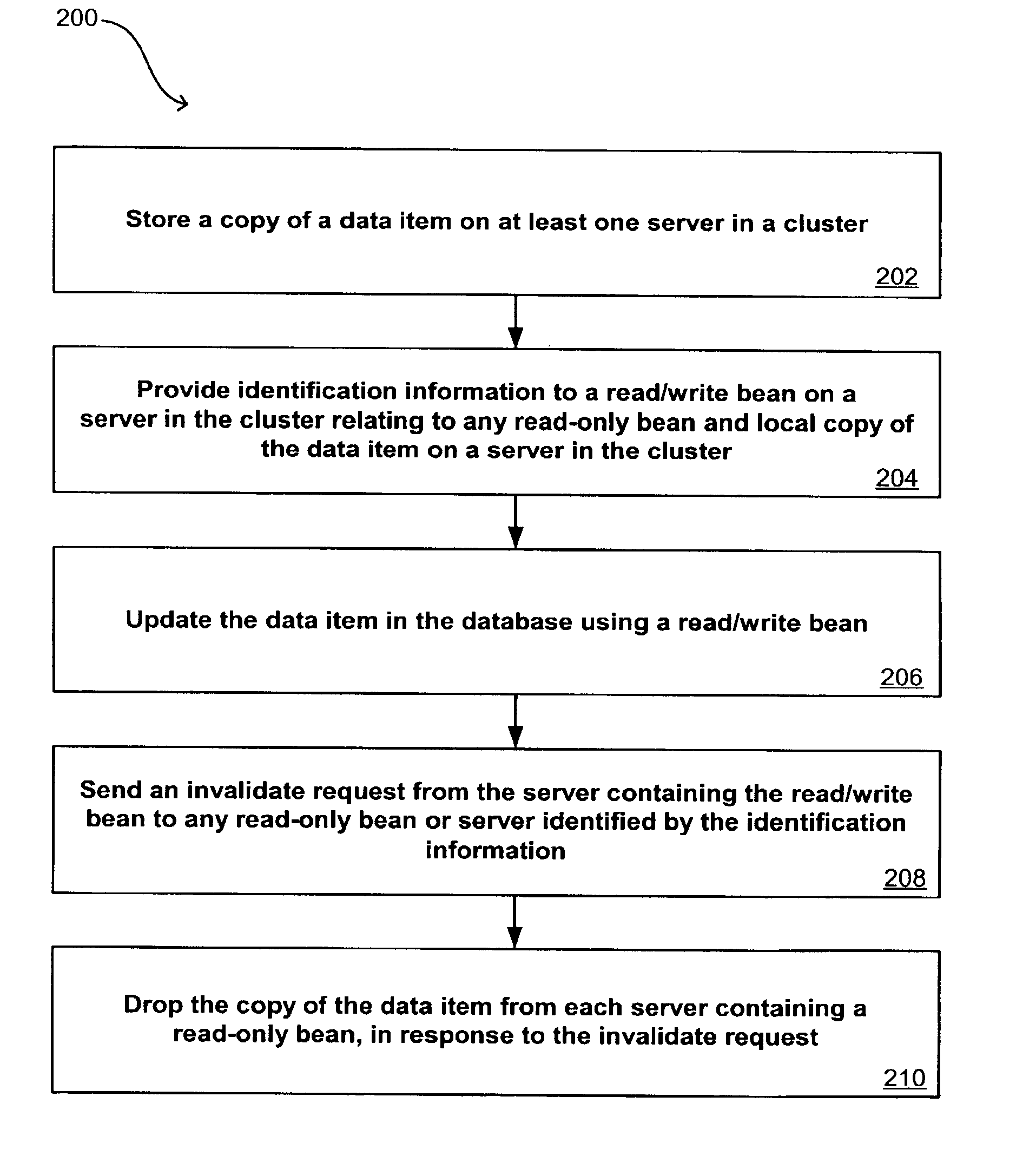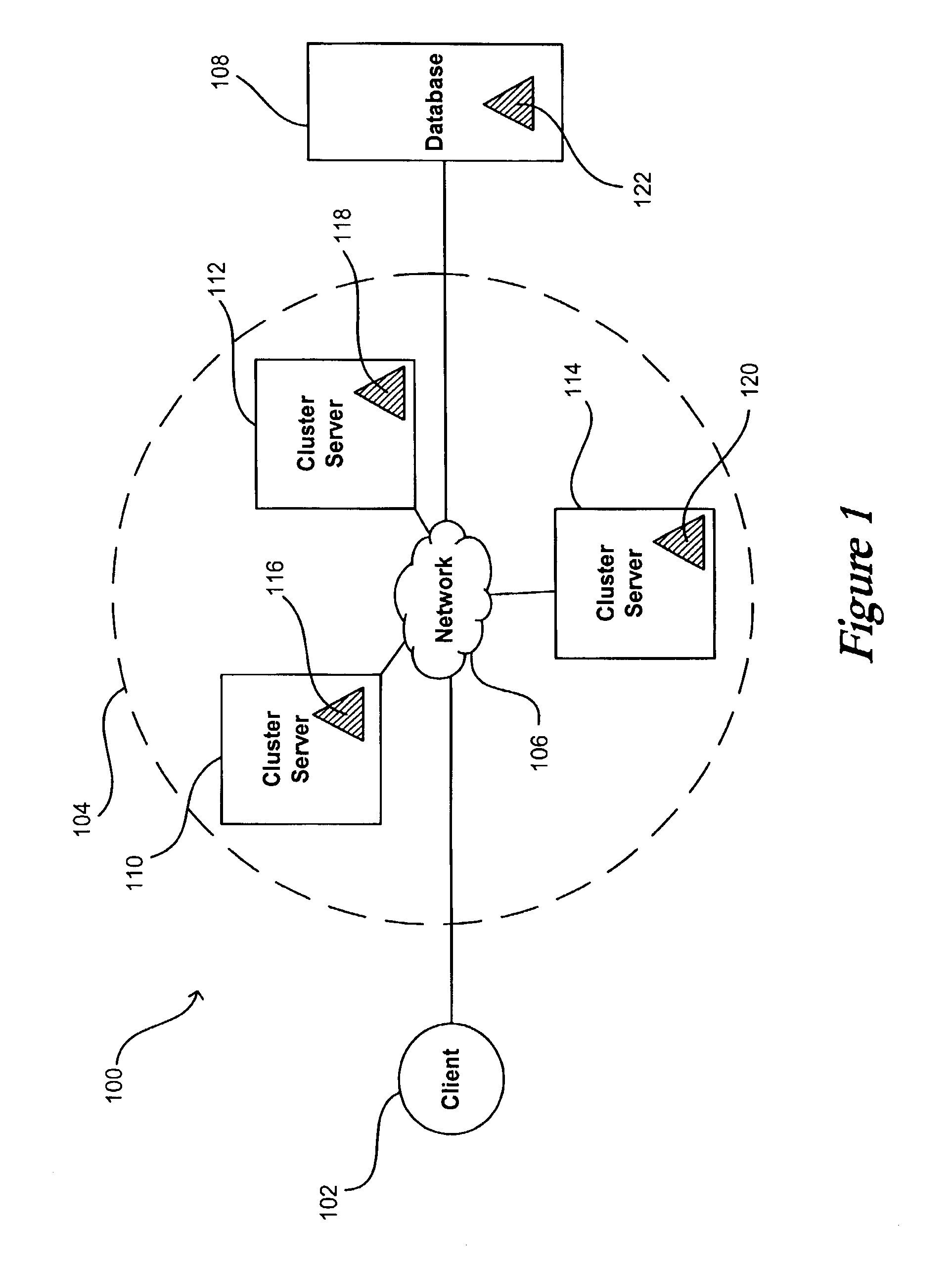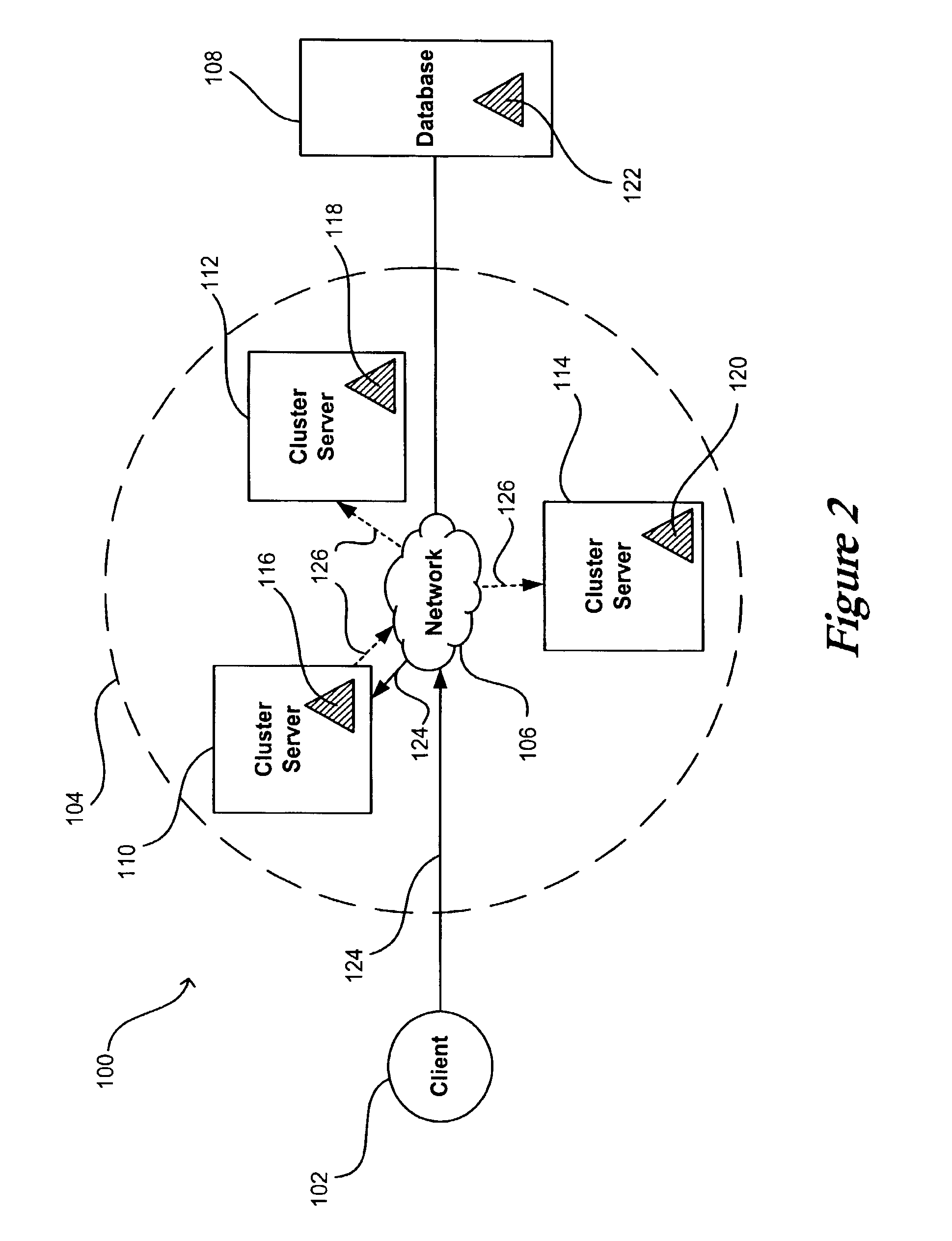System and method for flushing bean cache
- Summary
- Abstract
- Description
- Claims
- Application Information
AI Technical Summary
Problems solved by technology
Method used
Image
Examples
Embodiment Construction
[0021]In order to maintain consistency among items distributed on a network, a system in accordance with the present invention can take advantage of beans, or JavaBeans. A bean is basically a framework for components that can be added to a server to extend functionality. One embodiment utilizes two types of beans, “read-only” entity beans and “read / write” entity beans. An entity bean is a bean that is persistent, allows shared access, has primary keys, and can participate in relationships with other entity beans. Each entity bean can have an underlying table in a relational database, with each instance of the bean corresponding to a row in that table.
[0022]A read-only bean is a bean that can be cached on a server, such as an enterprise JavaBean that resides in a network cluster. The read-only bean can provide read access to any server in the cluster, as well as to any client inside or outside of the cluster. The read / write bean is transactional, residing on a server in the cluster a...
PUM
 Login to View More
Login to View More Abstract
Description
Claims
Application Information
 Login to View More
Login to View More - R&D
- Intellectual Property
- Life Sciences
- Materials
- Tech Scout
- Unparalleled Data Quality
- Higher Quality Content
- 60% Fewer Hallucinations
Browse by: Latest US Patents, China's latest patents, Technical Efficacy Thesaurus, Application Domain, Technology Topic, Popular Technical Reports.
© 2025 PatSnap. All rights reserved.Legal|Privacy policy|Modern Slavery Act Transparency Statement|Sitemap|About US| Contact US: help@patsnap.com



